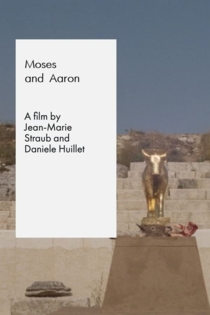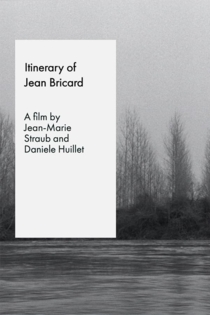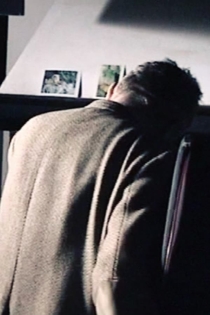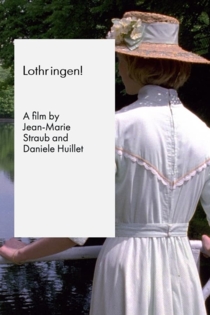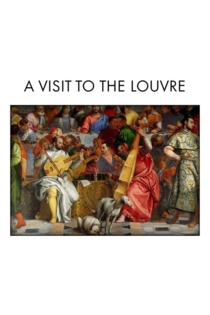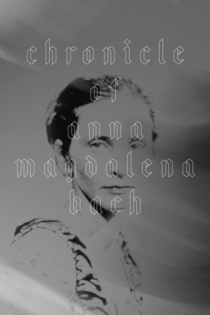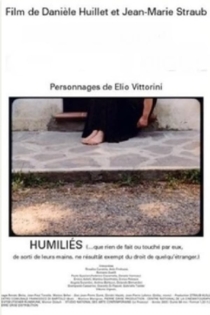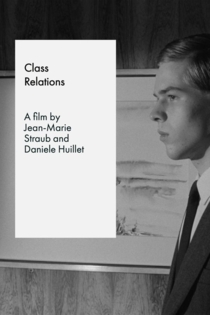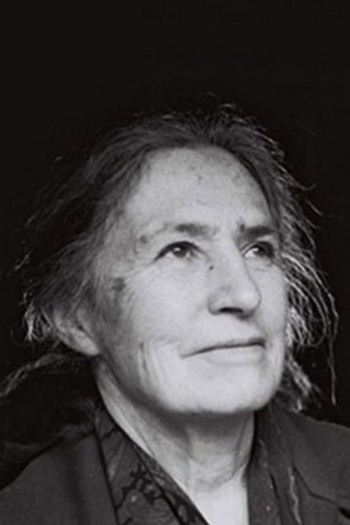
Danièle Huillet
1936 - 2006Les avatars de la mort d’Empédocle
Jean-Paul Toraille
Jean-Marie Straub, Vladimir Baratta
In the summer of 1986, Danièle Huillet and Jean-Marie Straub were working in the park of an old Sicilian mansion and in a clearing at the foot of Mount Etna shooting Der Tod des Empedokles. Assistant cameraman Jean-Paul Toraille toyed around, so to speak, with his first video camera, filming the daily work on the set. Now, 24 years later, he was joined by Jean-Marie Straub in editing the material into a film. Anyone who expected the shooting of Les Avatars de la mort d’Empédocle to be an austere affair, an exercise entirely devoid of humour or a Straubian tour de force is proven wrong: so much lightness, joy, concentration, spells of waiting for the sun to come out – and even proper slapstick in between – is hard to find.
Les avatars de la mort d’Empédocle

Où gît votre sourire enfoui?
Pedro Costa
Jean-Marie Straub, Danièle Huillet
Undaunted by a commission to make a film about his mentors and aesthetic exemplars, the filmmaking team of Jean-Marie Straub and Danièle Huillet, Costa records with great sensitivity and insight the exacting process by which the two re-edit their film Sicilia!, discussing and arguing over each cut and its effect. Incorporating comments about the influence of figures as diverse as Chaplin and Eisenstein, about the ethical and aesthetic implications of film technique and such matters as rhythm, sound mixing, and acting. The film becomes a tour de force, immersing us in the mysteries of cinema as practiced by some of its greatest creators. Costa calls the film both his first comedy and his first love story.
Where Does Your Hidden Smile Lie?
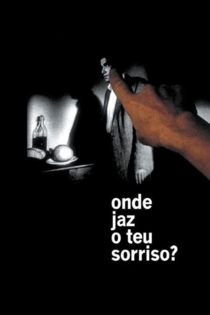
Verteidigung der Zeit
Peter Nestler
Danièle Huillet, Jean-Marie Straub
Peter Nestler's poetic documentary Verteidigung der Zeit is not only an hommage to Jean-Marie Straub's and Danièle Huillet's film Quei loro incontri (2005), but also to their access to cinema itself. In various encounters and conversations Nestler offers an insight into their life and work, including passages from Italian poet Cesare Pavese.
Verteidigung der Zeit
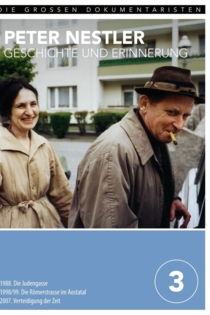
Von heute auf morgen
Jean-Marie Straub, Danièle Huillet
Richard Salter, Christine Whittlesey
Based on a rarely performed Schoenberg opera from 1929, From Today Until Tomorrow explores one night in a marriage. A husband and wife return from a party where she has flirted with another man while he has cast an appraising eye toward one of her acquaintances. Each dreams, briefly, of leaving the marriage for the excitement and mystery of a new lover.
From Today Until Tomorrow
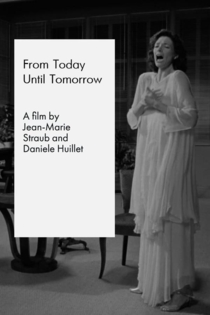
Dialogue d’ombres
Jean-Marie Straub, Danièle Huillet
Cornelia Geiser, Bertrand Brouder
Jean-Marie Straub’s new film closes the circle. The years 1954–2013 are displayed as representing a film produced in collaboration with Danièle Huillet. The two had met in Paris in 1954, around the year they came across the text by Georges Bernanos, to whom Straub has now dedicated a half-hour film. A man and a woman engaged in a dialogue, talking about their love, as if talking across an abyss. Then, in the last take, the two of them close together, motionless for a long time
Dialogue of Shadows

Wie will ich lustig lachen: Danièle Huillet und Jean-Marie Straub und ihr Film Klassenverhältnisse
Manfred Blank
Jean-Marie Straub, Danièle Huillet
Filmmaker Manfred Blank (director of the excellent Pharos of Chaos) interviews Danièle Huillet and Jean-Marie Straub at some length about their then-current production, Klassenverhältnisse (Class Relations), in which he, himself, performed as an actor.
How Merrily I Shall Laugh: Danièle Huillet and Jean-Marie Straub on Their Film Class Relations
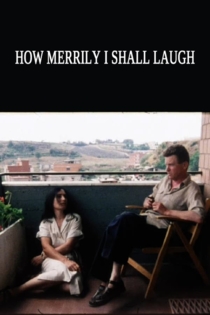
Sicilia!
Jean-Marie Straub, Danièle Huillet
Gianni Buscarino, Vittorio Vigneri
A man returns to visit his native Sicily after living in New York for a long time. He learns about the Sicilian way of life from stylized conversations with an orange picker, his fellow train passengers, his mother, and a knife-sharpener.
Sicily!
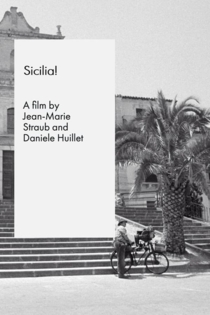
Moses und Aron
Jean-Marie Straub, Danièle Huillet
Günter Reich, Louis Devos
A familiar Biblical tale transformed into a cinematic opera of seemingly endless possibility. In expressive, melodic tones, the fraternal pair debate God’s true message and intent for His creations, a conflict that leads their followers towards chaos and sin. Set almost entirely within a Roman amphitheater whose history lends every precise line-reading and gesture, every startling camera move and cut, a totalizing force.
Moses and Aaron
